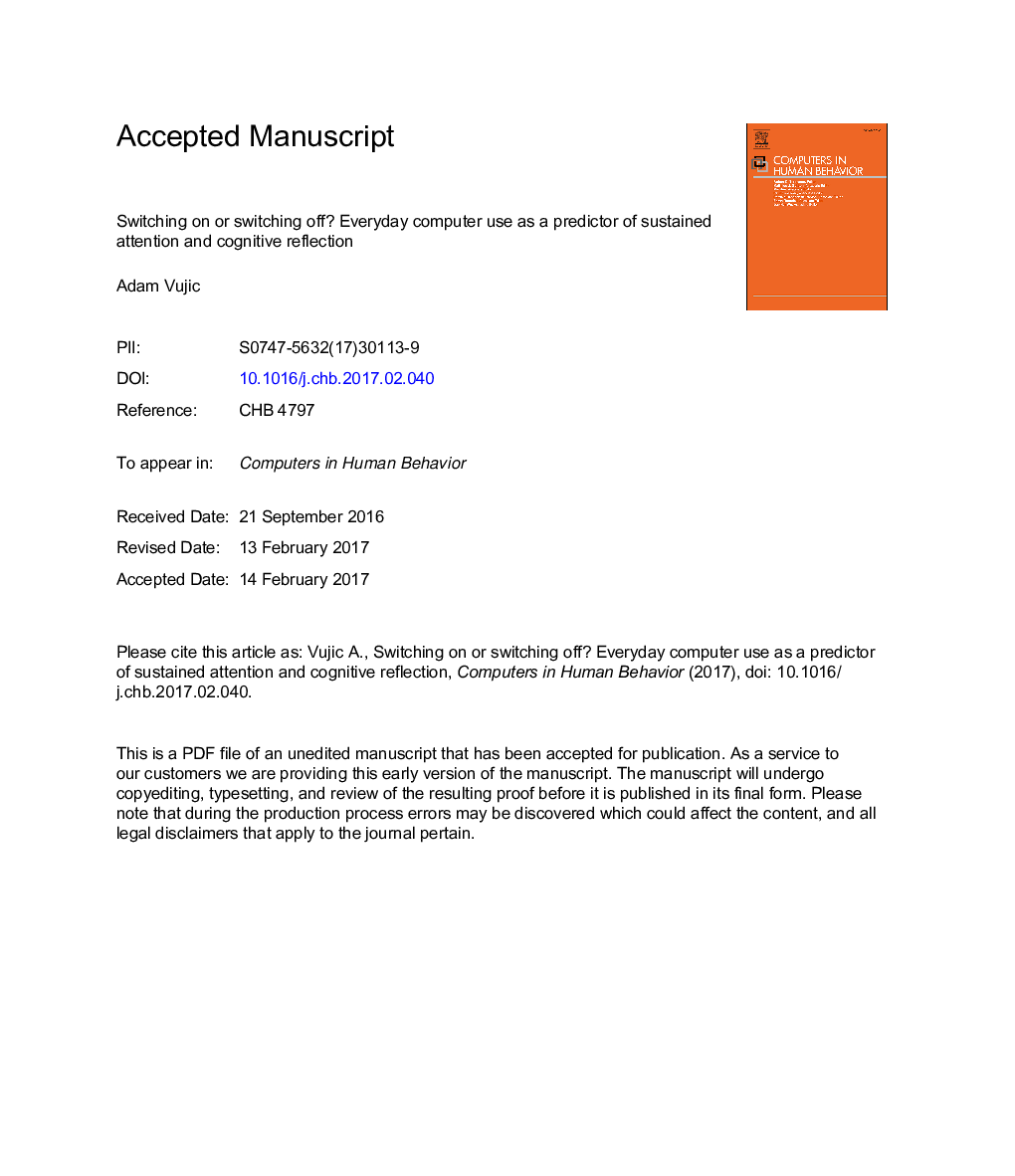| Article ID | Journal | Published Year | Pages | File Type |
|---|---|---|---|---|
| 4937087 | Computers in Human Behavior | 2017 | 52 Pages |
Abstract
In response to concerns that modern computer usage habits are having a deleterious effect on cognitive functioning, a study was designed to investigate the relationship between three dimensions of computer usage behaviour and two cognitive abilities: sustained attention and cognitive reflection. Trait mindfulness was incorporated as a potential protective factor for decline in cognitive functioning. A sample of 155 adults was recruited anonymously via Internet sources to complete a computer usage questionnaire, the Mindful Attention Awareness Scale, the Cognitive Reflection Test and the Mackworth Clock Vigilance Test. Hierarchical regression models were generated for criterion variables cognitive reflection and sustained attention, with 7 predictors entered in three steps: (a) demographics (age, gender, education); (b) computer usage behaviour (daily computing hours, daily computing sessions, mobile use percentage); and (c) trait mindfulness. Computer usage behaviour and demographics accounted for 12.4% of the variance in sustained attention, with a significant 11.6% uniquely predicted by computer usage behaviour. For cognitive reflection, 13.5% of the variance was explained by combined computer usage and demographics, with a significant 7.4% of unique variance explained by computer usage. Computing hours and computing sessions were significant individual predictors of sustained attention, whereas computing hours, mobile use percentage and gender were significant predictors of cognitive reflection. Trait mindfulness did not significantly contribute to the predictive power for either model, suggesting it is not a protective factor for sustained attention or cognitive reflection. Findings are discussed in relation to dual-process theory, the Baddeley and Hitch working memory model and contemporary social commentary.
Keywords
Related Topics
Physical Sciences and Engineering
Computer Science
Computer Science Applications
Authors
Adam Vujic,
